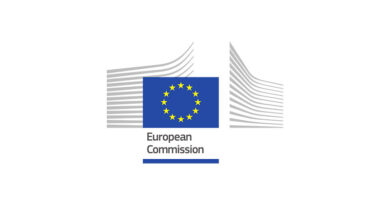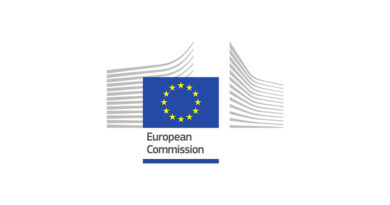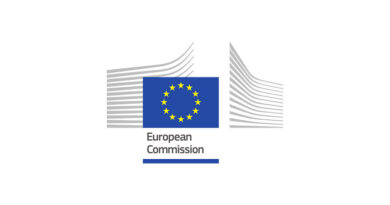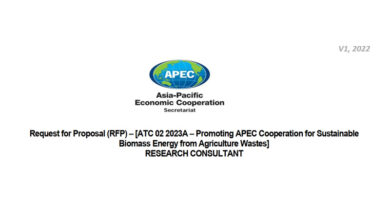State aid: Commission approves investment aid for Czech orchards and irrigations
12 January 2021, EU: The European Commission has approved two Czech investment aid support schemes for the restructuring of orchards and irrigation, while opening an in-depth investigation to assess whether investment aid granted to certain large enterprises active in the agricultural sector in the past was in line with EU rules on State aid in the agricultural sector. In parallel, the Commission has opened an in-depth investigation to assess whether past and planned aid to certain large enterprises to support crop and livestock insurance is in line with EU rules on State aid in the agricultural sector.
Investment aid to large enterprises for the restructuring of orchards and irrigation
Czechia notified to the Commission its plans to implement two aid schemes to support undertakings active in the agricultural sector irrespective of their size in investing in the restructuring of orchards and irrigation. The estimated budget of the schemes was €52.4 million and €21 million respectively.
The Commission found that the aid that the Czech authorities plan to grant in the future under the two notified schemes is in line with the conditions set out in the 2014 Agricultural State aid Guidelines with respect to all types of beneficiaries. On this basis, the Commission approved the measures under EU State aid rules.
As regards the past, during its assessment of the proposed measures, the Commission found that, in the previous years, some of the beneficiaries of those schemes had been erroneously qualified by the Czech granting authorities as small or medium-sized enterprises (SMEs), while they were in fact large undertakings. The Commission found that those large undertakings had received aid on the basis of existing Czech schemes, which are block exempted under the Agriculture Block Exemption Regulation and are accessible only to SMEs.
The Commission’s 2014 Agricultural State aid Guidelines enable Member States to grant investment aid in favour of enterprises of all sizes, subject to certain conditions. When investment aid is granted to large enterprises, due its potential distortive effects, certain additional conditions need to be met to ensure that possible competition distortions are minimised. In particular, investment aid to large enterprises must: (i) have a real incentive effect, i.e. the beneficiaries would not carry out the investment in the absence of the public support (namely a ‘counterfactual scenario’ describing the situation absent the aid); and (ii) be kept to the minimum necessary based on specific information.
At this stage, the Commission has doubts that the aid already granted by Czechia to the large enterprises complies with those conditions, in particular due to the absence of the submission of a counterfactual scenario to ensure that aid granted to large undertakings in the past was proportionate.
The Commission will now investigate further to determine whether its initial concerns are confirmed. The opening of an in-depth investigation provides all interested parties with an opportunity to comment on the measure. It does not prejudge in any way the outcome of the investigation.
Aid to support crop and livestock insurance premium for large enterprises
Czechia notified the Commission of its plans to grant €25.8 million of public support for crop and livestock insurance premium for large enterprises.
The Commission’s assessment revealed that such support had already been granted in the past to beneficiaries that had been erroneously qualified by the Czech granting authorities as SMEs, while they were in fact large enterprises.
At this stage, the Commission has doubts that Czech aid for crop and livestock insurance premiums in the past complies with the requirements foreseen by the 2014 Agricultural State aid Guidelines for large enterprises. In this respect, in the absence of the submission of a counterfactual scenario by the beneficiaries that were erroneously qualified as SMEs, it is unlikely that the Czech authorities could ensure that the aid granted to large undertakings had an incentive effect.
Under the scheme notified by Czechia, the beneficiaries will have to apply for the aid only at the stage of the payment of the insurance premium, and not before signing the insurance contract. The Commission has therefore doubts at this stage that the measure has a real incentive effect, in other words that the beneficiaries would not conclude insurance contracts in the absence of the public support. Also in the case of past and planned aid to support crop and livestock insurance premium for large enterprises, the Commission will now investigate further to determine whether its initial concerns are confirmed. The opening of an in-depth investigation provides all interested parties with an opportunity to comment on the measure. It does not prejudge in any way the outcome of the investigation.
Background
In view of the often reduced financing possibilities of farmers, the Commission’s 2014 Guidelines for State aid in the agricultural and forestry sectors and in rural areas allow Member States to support investments and insurance premiums for undertakings. However, the measures should meet a number of conditions, notably:
The ‘incentive effect’ principle: the aid application must be submitted before the start of the aided activity;
The requirement for large enterprises of proving the ‘incentive effect’ through a ‘counterfactual scenario’: they need to submit documentary evidence showing what would have happened in a situation in which the aid had not been granted;
The aid must respect be proportionate; and
Specific conditions related to eligible activities, eligible costs and aid intensity.
Small and medium-sized enterprises (SMEs) are defined in Annex I to Commission Regulation (EU) 702/2014. The same Regulation explains that the development of SMEs may be limited by market failures. SMEs typically have difficulty in obtaining capital or loans, given the risk-averse nature of certain financial markets and the limited collateral that they may be able to offer. Their limited resources may also restrict their access to information, notably as regards new technology and potential markets. As the Union Courts have consistently confirmed, the definition of an SME has to be interpreted strictly.















